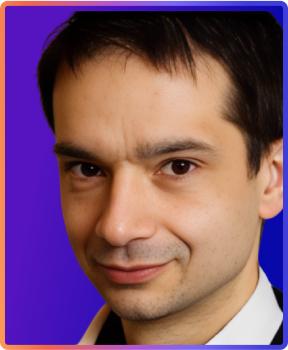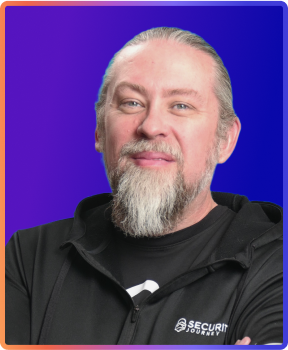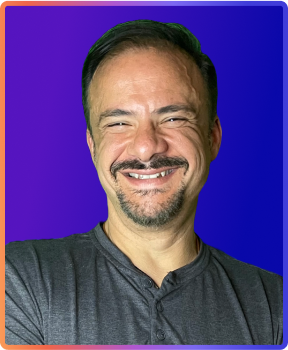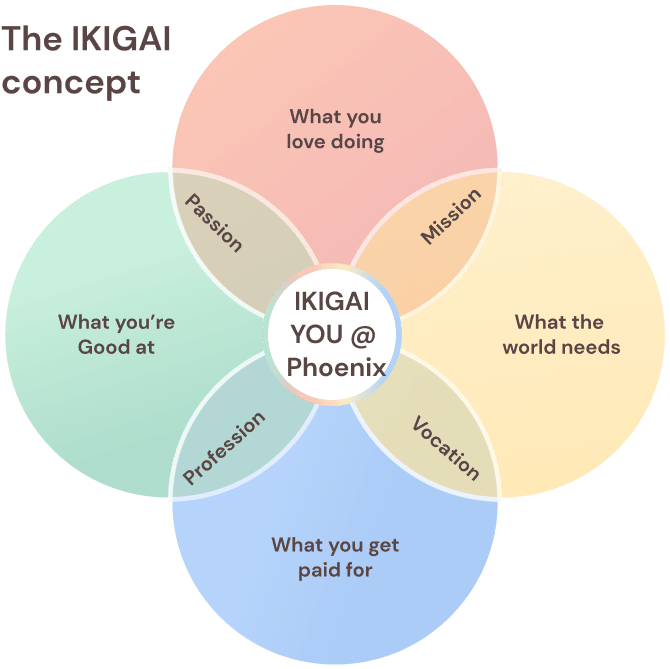Join our Mailing list!
Get all the latest news, exclusive deals, and feature updates.
AppSec teams can’t fix vulnerabilities all of the time. It’s time to enable your security teams to prioritize the vulnerabilities that matter most. Achieve more with less by automating resolution and assigning tasks to the right teams with Phoenix Security Vulnerability Management.






Vulnerability management in SMEs and enterprise is complex and involves multiple teams. Identifying asset ownership, tracking application positions, and understanding the impact is key for prioritizing and translating the risk perception to the business.
The information that a vulnerability management team needs is often scattered across CMDB, Application Security Testing tools, and Vulnerability Assessment tools, making it time-consuming and requiring enormous manpower to review, correlate, and communicate those risks effectively.
Scale the manual correlation process with Phoenix Security, and enable the security team to focus on protecting the critical assets.
Laser focus on the top 10% of vulnerabilities that matter most today. Reduce risk faster with priority to contextualized vulnerabilities
Achieve a single view on vulnerabilities that are contextualized and prioritized. Reduce false positives.
Automatic threat intelligence identifies risk and improves efficiency, enabling fast reaction.
Accelerate security’s teams from triage and remove false positives.
Track asset location, the vulnerabilities associated with each asset, and the impact on the business.
Leverage real-time grouping to aggregate systems and create dynamic views and dashboards with Phoenix Security.


Phoenix Security natively integrates with modern workflow tools like Jira and Azure devops, and other communication tools such as Slack and Teams, delivering a prioritized and targeted list of vulnerabilities that require immediate attention. By leveraging threat intelligence, business context and locality, the Phoenix Security platform continuously reprioritizes vulnerabilities, enabling developers to work on the things that matter most.
Leverage AppSec insights to schedule your security champion program and your application security training, focusing on the errors that the teams perform the most and providing contextualized training.

When there are thousands of vulnerabilities, what I really need from the security team is a clear list of what to focus on. When everything is a priority, nothing is.

For appsec and DevSecOps teams. Prioritize appsec vulnerabilities and scale application security programs with risk-based approach

Prioritize Cloud misconfiguration and scale Cloud security programs with risk-based approach

ACT fast on Risk and fix the vulnerabilities and misconfigurations that matter most. Drive Risk based actions and set targets for engineers based on risk profile.

For SOC and SecOps teams. Prioritize vulnerability and scale vulnerability management programs with risk-based approach

Know the asset that you own, what’s assessed and act fast on the vulnerabilities that matter most. Asset management and risk assessment all in one.

Phoenix Security empowers security teams to act fast on exploited vulnerabilities and when threat actors exploit them in the wild. Automate Ticket opening, escalation and block vulnerabilities going to production.

Cloud Security Posture Management- correlate application security and Cloud security in one single place, allowing you to control and act on the most important misconfigurations

Application security posture management -automates the identification of software assets as well as the tracking and scheduling of all application security tools and processes
As a cyber security practitioner, I saw first-hand what complexity can do to an organization; risk has been the key to master and communicating with the business. I’ve seen it first hand in my years in cybersecurity.
Mike Takla
Co-Founder & Chief Revenue Officer at HackNotice

As both a deep practitioner of cloud and application security as well as cyber risk quantification I am excited about the increased context and democratization of CRQ that Phoenix brings to the industry. There is not another platform looking to combine across disjointed security silos and also bringing in a whole host of integrations, intelligence and quantification to the masse
Jonathan Rau
CISO Lightspin, Former AWS Security

As cyber security practitioner I saw first had what problem application and operational security have and Phoenix is revolutionizing the way those two team communicate in terms of risk
Vandana Verma
Security Relationship Leader Snyk

As a cyber security practitioner, I saw first-hand what benefits centralizing and translating vulnerabilities volumetrics into cyber risk does
Chris Martorella
Product Security MIRO,Former CISO Skyscanner

As Appsec practitioner I saw first had what complexity does to an application and cloud security program. Phoenix Security understands how to execute at scale cloud security and application security programs, linking application to deployment. I am excited to see innovation that really helps to simplify, visualize and prioritize
John Kinsella
Co-Founder Cysense Journey

Phoenix Security has a unique view on risk and quantification and is what we need in running application security programmes in an optimized way
Chris Hodson
CISO Contentful

DevSecOps programs are struggling to keep up with the sheer number of vulnerabilities across multiple build pipelines. Phoenix allows us to focus on the exploitable items first
Chris Romeo
Co-Founder Security Journey

Phoenix Security is solving an important problem in Application Security providing both high level risk based views for leadership, and detailed technical views for developers and engineers; and ultimately removing the friction running AppSec Programmes
Kevin Fielder
FNZ

I’ve seen Phoenix Security over the year and has one of the most compelling AppSec feature the prioritisation of work for DevOps Team uducing the burden of work for resource starved Security teams
Stephen Owen
CISO Esure Group











Trusted by more than 1000 users and 380 organizations


Derek Fisher – Head of product security at a global fintech. Speaker, instructor, and author in application security.
Derek is an award winning author of a children’s book series in cybersecurity as well as the author of “The Application Security Handbook.” He is a university instructor at Temple University where he teaches software development security to undergraduate and graduate students. He is a speaker on topics in the cybersecurity space and has led teams, large and small, at organizations in the healthcare and financial industries. He has built and matured information security teams as well as implemented organizational information security strategies to reduce the organizations risk.
Derek got his start in the hardware engineering space where he learned about designing circuits and building assemblies for commercial and military applications. He later pursued a computer science degree in order to advance a career in software development. This is where Derek was introduced to cybersecurity and soon caught the bug. He found a mentor to help him grow in cybersecurity and then pursued a graduate degree in the subject.
Since then Derek has worked in the product security space as an architect and leader. He has led teams to deliver more secure software in organizations from multiple industries. His focus has been to raise the security awareness of the engineering organization while maintaining a practice of secure code development, delivery, and operations.
In his role, Jeevan handles a range of tasks, from architecting security solutions to collaborating with Engineering Leadership to address security vulnerabilities at scale and embed security into the fabric of the organization.

Jeevan Singh is the Director of Security Engineering at Rippling, with a background spanning various Engineering and Security leadership roles over the course of his career. He’s dedicated to the integration of security practices into software development, working to create a security-aware culture within organizations and imparting security best practices to the team.
In his role, Jeevan handles a range of tasks, from architecting security solutions to collaborating with Engineering Leadership to address security vulnerabilities at scale and embed security into the fabric of the organization.

James Berthoty has over ten years of experience across product and security domains. He founded Latio Tech to help companies find the right security tools for their needs without vendor bias.


Chris Romeo is a leading voice and thinker in application security, threat modeling, and security champions and the CEO of Devici and General Partner at Kerr Ventures. Chris hosts the award-winning “Application Security Podcast,” “The Security Table,” and “The Threat Modeling Podcast” and is a highly rated industry speaker and trainer, featured at the RSA Conference, the AppSec Village @ DefCon, OWASP Global AppSec, ISC2 Security Congress, InfoSec World and All Day DevOps. Chris founded Security Journey, a security education company, leading to an exit in 2022. Chris was the Chief Security Advocate at Cisco, spreading security knowledge through education and champion programs. Chris has twenty-six years of security experience, holding positions across the gamut, including application security, security engineering, incident response, and various Executive roles. Chris holds the CISSP and CSSLP certifications.

Jim Manico is the founder of Manicode Security, where he trains software developers on secure coding and security engineering. Jim is also the founder of Brakeman Security, Inc. and an investor/advisor for Signal Sciences. He is the author of Iron-Clad Java: Building Secure Web Applications (McGraw-Hill), a frequent speaker on secure software practices, and a member of the JavaOne Rockstar speaker community. Jim is also a volunteer for and former board member of the OWASP foundation.
Get all the latest news, exclusive deals, and feature updates.

